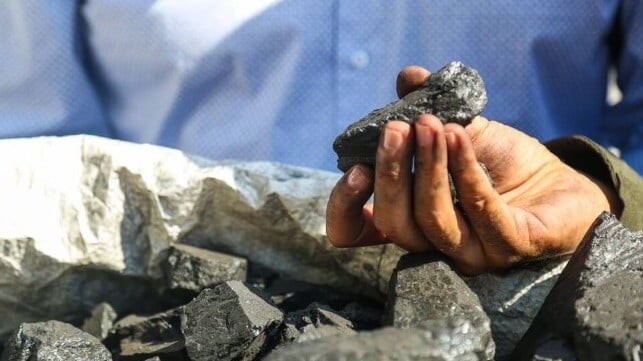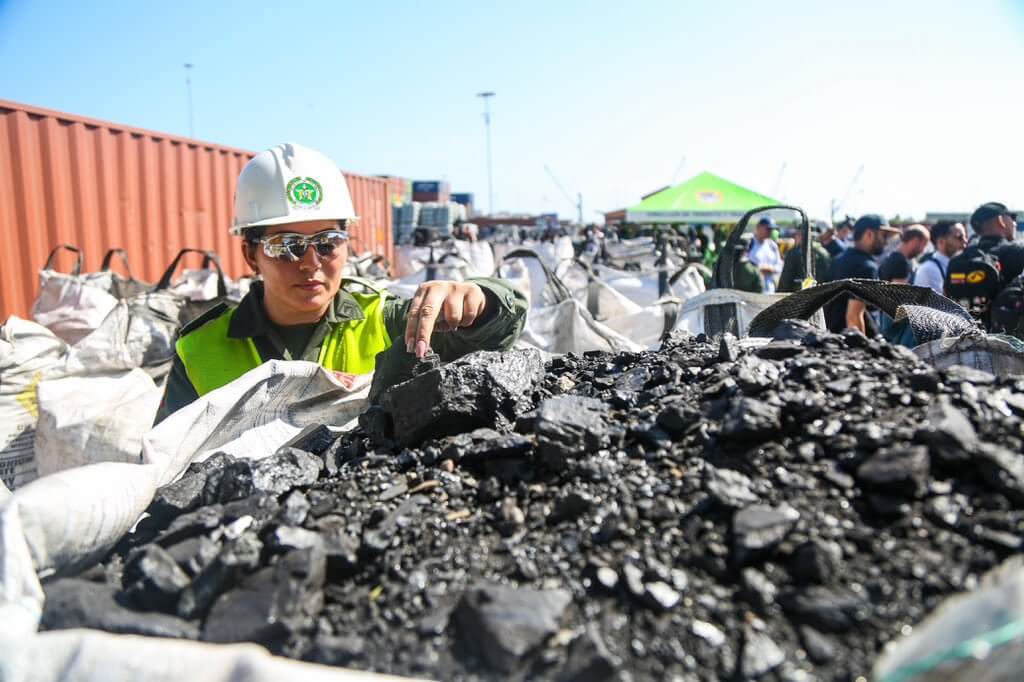West P&I: Smugglers are Hiding Cocaine in Cargoes of Coal

West P&I has released a new report on the state of cocaine smuggling in Colombia, an ever-growing liability for shipping interests. Colombia's cocaine production hit a new record high last year, and smugglers are more aggressive and inventive than ever. Their criminal activity can have significant repercussions for innocent vessel operators who get caught in the middle, Wedst warned.
Colombia's Dirección Nacional Marítima (DIMAR) reports that smugglers are diversifying in their cargo targets. Reefer containers of bananas are a perennial favorite, but over the last two years, criminal gangs have developed new techniques for disguising cocaine in bulk cargoes. Displaying little concern for the health of their customers, some smugglers are shipping cocaine as "fake coal" hidden within consignments of real coal.

"Coal" shipment at Baranquilla, 2023 (Policia Nacional)
"Drug dealers develop new methods to camouflage drugs within these cargoes every day, managing even to simulate coal texture and shape to traffic drugs without been noticed by security officers or crews," said West's correspondent in Colombia, A&A Multiprime.
Bribery, extortion and corruption go hand-in-hand with smuggling operations, and West warns that port personnel and crewmembers can fall prey to these techniques. The acquiescence or assistance of these insiders is essential to the drug-running enterprise: port personnel can help smugglers access containers, and corrupt seafarers can haul aboard and stow away drugs. The latest trend appears to be for smugglers to stockpile drugs at a safehouse close to a terminal, then collaborate with port personnel to bring the contraband into the facility, often at night.
Common concealment strategies include stuffing small amounts of cocaine into tucked-away hiding spaces within the ship, sometimes with the help of the crew; burying cocaine packages in bulk cargo; and attaching bundles to the hull or sea chest (though better security measures are discouraging this practice).

that matters most
Get the latest maritime news delivered to your inbox daily.
West advises bringing extra security guards on board, keeping a searchlight on at night, checking the hull with a dive team before departure, and searching everyone who comes on board (including the extra security guards).
The potential repercussions for the operator are significant. An administrative investigation could result in fines up to $50,000. A criminal investigation could result in detention of the ship and crew. Crewmembers could be subject to imprisonment of 8-20 years if found guilty of smuggling.
